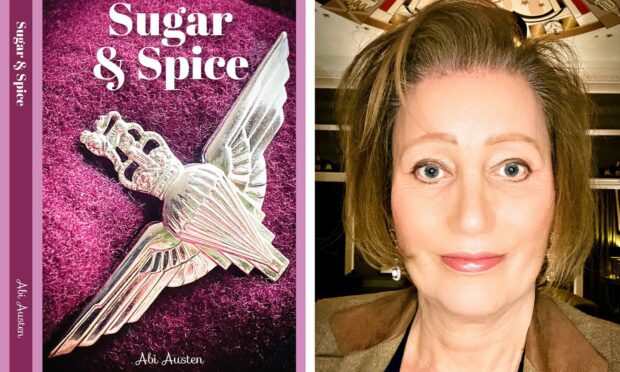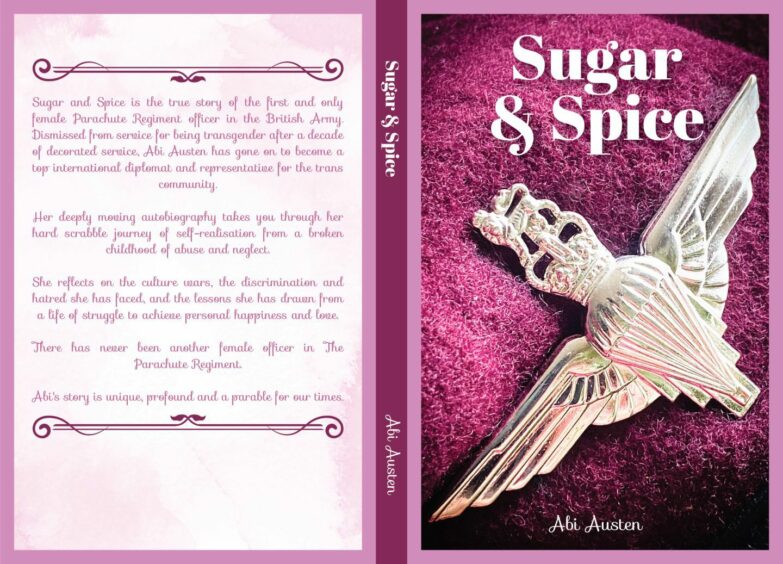Growing up in Aberdeen, author and senior diplomat Abi Austen’s memories of the Granite City in the 1970s are not dearly held ones.
In fact, she says the majority of her time was spent “dodging violence” because of her differences.
Ms Austen has since become well-known for successfully suing the UK Government for her wrongful dismissal from the British Army after announcing her intentions to undergo gender reassignment.
She later became the first trans officer in the British Army and Scottish police and the first trans diplomatic ambassador.
Ms Austen has now written a book on her childhood growing up, her personal struggle as a transgender person and her years in public service – with the hopes it will help the ongoing “toxic” transgender debate.
New book serves as a warning to the transgender debate
Ms Austen, 60, said her new memoir should also serve as a warning for the direction the gender debate is travelling in.
“When I look at the debate that’s happening in Scotland, I see two entrenched sides,” she said.
“Both of which have got reasonable points to express, but the way that they choose to express it has become a form of trench warfare where each has become terminally fixed in their opinion.
“In my life as a diplomat and a police officer, I learned there are no absolutes in life.
“Everybody has a point to make and everybody’s voice should be respected. I think that if we’re going to resolve this we need to take a step back.
“They’re paying undue attention to the very vocal minorities on both sides of the debate and their entrenched opinions. Frankly, neither side in this reflects what I believe to be the vast majority of individuals in my community who really just get on with their lives.
“We’ve got to remove all of the glibness from the argument because you can’t talk about this in a one sentence slug line. It’s far, far too complicated for that.
“It is going to require compromise on both sides. The trouble I see in the present debate is that there is no give and take on either side and legislators and society in general.”
Learned to hide who she was
Originally growing up in Belfast, Ms Austen’s parents moved to Stonehaven when she was around six-years-old.
Later moving to the west end of Aberdeen, Ms Austen spent a few years at Dunnottar Primary School and her senior years in Robert Gordon’s College.
Born to conservative parents and named Ian Hamilton, growing up she struggled with a “profound dislocation” with her role in society and her physical form.
This coupled with regular physical and sexual abuse caused Ms Austen, who now lives in Liverpool, to learn to hide many things.
“My overwhelming memory of the 1970s was being hit,” she said.
“There was nobody you could go and talk to about any of that stuff.
“Because if you went and told the police or my family, my father about it, he would hit you again as well for what he saw as feminine and unacceptable behaviour.
“The only good thing I took out of all those formative years in Aberdeen was to hide who I am because anytime that I did any feminine behaviour like that, it was met with violence or social exclusion.
“It’s not a feeling you’re in the wrong body. It’s my body, my body is me.
“All I did was I really just took agency over my physical form.
“I found there was a profound dislocation in the role I was assigned in society and when I looked at my external physical form from the way that I knew with certainty that I was inside.”
Told everyone who she really was
In her new book, Ms Austen talks about pursuing several careers in photography, journalism and eventually the Army – all the while battling an internal dynamic that was becoming harder to ignore.
“I was trying to come up with ways that I could make everybody else happy but it was making me more and more miserable by trying to find this compromise,” she said.
In her mid-30s, Ms Austen served four operational tours with the parachute regiment in the army before having to be medically evacuated the UK after getting too close to a Taliban bomb in Northern Afghanistan.
“It was at that stage I had reached the end of my tether. I couldn’t go any further with the life I was leading, the identity I was leading. So I told the army who I really am.
“The army reacted really, really badly to my declaration, fired me overnight.
“I was dismissed from the service without cause and at the same time I told the army, I told my family and my family disowned me in the same week as well.”
After raising enough funds, Ms Austen spend the next two years in and out of Thailand getting over 30 different and complicated procedures to transform herself into “this gorgeous creature that’s talking to you today”.
She shortly changed her name from Jan Hamilton to Abigail Austen and joined the Scottish police for three years, served as a political advisor and then moved to full-time diplomacy in 2014.
Entering the public arena one more time
Ms Austen came back to the UK last year “for a pause” and started to write down her thoughts which then became her latest book Sugar and Spice.
Not intending it to come out at the same time as the gender controversy debate, she hopes to not only share her story but also “positively influence what’s become quite a poisoned debate”.
She said she has largely achieved everything she hoped to in life and her story has a happy ending.
She added: “With the exception of seeing the transgender condition accepted and celebrated in public life.
“That’s the one challenge that’s left for me to do so I’m going to pick up the cudgels one last time on this and put myself in the public arena one more time to see if I can make a difference.”






Conversation